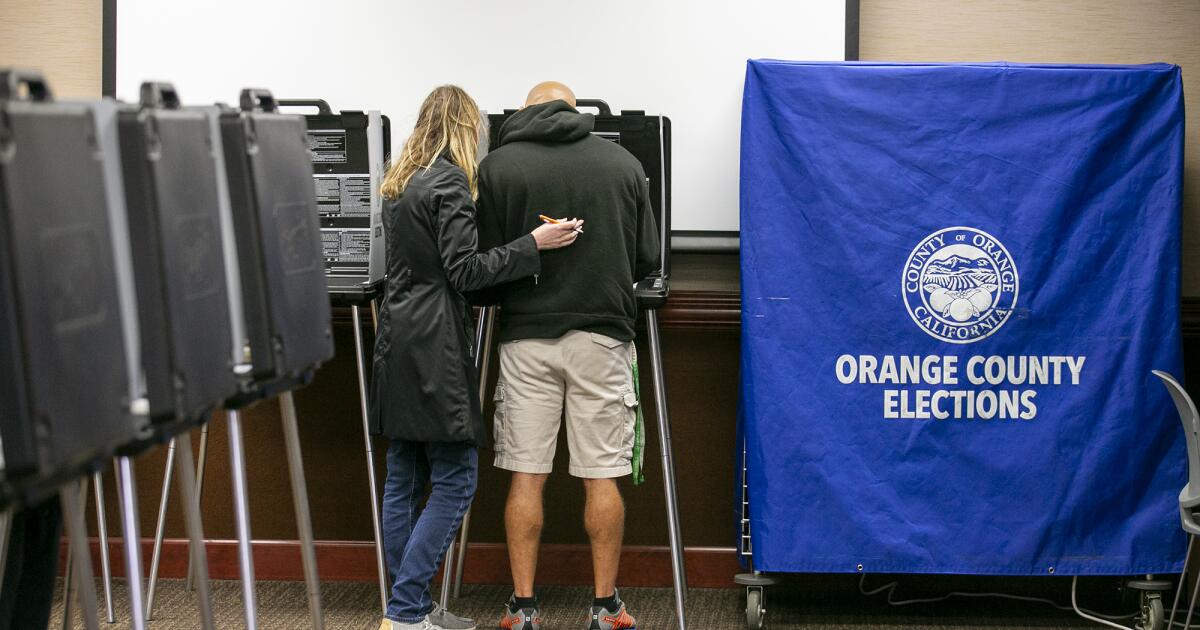Some people seek a bar or nature hike when they feel low. I go to the supermarket.
My spirits lift as I stroll the aisles. I bop along to easy listening music. Exchanging pleasantries with cashiers lessens my loneliness. I celebrate the small wins — I procured broccoli (OK, and ice cream) — and leave with renewed purpose.
As someone with depression, I find that brick-and-mortar businesses help me avoid isolation by providing a space to be alone with others. But my happy places — supermarkets and pharmacies — say they have seen increasing theft and violence.
Locked glass cabinets safeguarding merchandise are now ubiquitous in chains like Target, Walmart and Walgreens. Asking clerks to retrieve detergent and baby formula is demoralizing enough, but businesses are implementing more severe security measures that erode customers’ spirits and our social fabric, even though it’s unclear whether shoplifting has become the national crisis that some retailers claim.
A grocery run shouldn’t feel like visiting a prison, but that’s the vibe shoppers get from extreme anti-theft measures at a Safeway in Oakland’s Rockridge neighborhood. Reddit users have described them as “jarring” and “hostile.”
At the Rockridge Safeway, sad lettuce sits behind 4-foot-high bars surrounding the store entrance. A guard presides over an automatic gate that opens upon approach and alarms sound if you try to exit the same way. Similar barriers at each register pen in customers. And don’t toss that receipt at self-checkout — you’ll need to scan it before you can leave.
Is this the grim future of grocery shopping? I hope not.
Safeway has since expanded these security measures to other locations in Oakland, San Francisco and San Jose. While tactics such as these are intended to uphold the norms against stealing, they in fact threaten community morale, trust and social cohesion.
With mental distress and loneliness on the rise, social disconnection poses health risks as deadly as smoking. To counteract this, the U.S. surgeon general urges investments in social programming, the built environment and neighborhood places such as libraries and parks. Sociologist Eric Klinenberg similarly argues, “Social infrastructure is crucially important, because local, face-to face interactions — at the school, the playground and the corner diner — are the building blocks of all public life.”
Under hospitable conditions, we transform seemingly mundane retail spaces into community “third places.” Eating areas, public restrooms and benches facilitate such “placemaking,” and research shows third places promote greater social cohesion and neighbor interaction. Ideally, they embed us in webs of supportive connections. For example, when I couldn’t reach my 94-year-old friend who lives alone and has memory problems, a supermarket pharmacy clerk passed on information picked up through the neighborhood grapevine that helped me track her down in a nursing home, where she had ended up after a fall.
Grocery stores feed our bodies but should also nourish sociability, not strip our dignity. Companies claim the new security measures make customers feel safer, but they risk molding us into more anxious, suspicious people. This psychic weight has unequal consequences — those with money and tech savvy can just shop online. Others who rely on in-person shopping face disproportionate dehumanization.
Organized retail theft and smaller-scale shoplifting are complex problems that require multipronged solutions. But it’s unclear if beefed-up security measures are actually helping to solve these problems. And without addressing socioeconomic conditions such as inflation, poverty and opportunity deficits, the help they do provide serves merely as a Band-Aid. Short- and long-term investments in our social safety net, including restoring SNAP benefits slashed for millions in March, and ensuring access to high-quality education, job training and a living wage, will alleviate economic desperation.
One powerful law enforcement tool to assist merchants is the bipartisan Combating Organized Retail Crime Act, currently pending in both houses of Congress, which would give federal prosecutors the authority to fight money laundering connected to large-scale theft and establish a federal coordination center to ease information sharing among investigators at all levels of government and affected businesses.
Informal observations of supermarkets I frequent, including Trader Joe’s, Whole Foods, Cardenas, Nob Hill Grocery, Smart & Final and numerous smaller grocers near my home in East Oakland, confirm that extreme security like that at the Rockridge Safeway remains the exception for now.
Rather than create fortresses that inspire dread, many beloved grocery chains have fashioned their stores into attractive destinations where superfan customers spend significant time and money. Self-proclaimed “Wegmaniacs” wax poetic about exceptional in-store cafeterias, high-caliber customer service and the mini-village feel of different departments. Stew Leonard’s theme park-like atmosphere has received Disneyland comparisons for its petting zoos and musical, animatronic displays. During a recent Utah trip, I became a repeat customer at Harmons Grocery, charmed by its colorful dining area with couches and brimming bookcases. Such business practices lift people and profits.
Businesses can also help those in their communities by partnering with nonprofits to connect customers to SNAP and WIC benefits. They could emulate public libraries that have invested in social workers to help meet patrons’ more complex needs.
Businesses, in supplying social contact, need our support. But they also bear social responsibility. Those that make their customers pay a psychological cost every time we purchase a gallon of milk will lose money as we start shopping elsewhere.
Stacy Torres is an assistant professor of sociology in the Department of Social and Behavioral Sciences at UC San Francisco.
Source link

Whether you're a startup or an established brand, business directories offer an affordable, yet powerful tool to elevate your brand recognition and reach. Sign up, stand out, and let your business soar to new heights, sign up to one of our directory websites:
Canyon Crest Directory
Riverside Ca Business Directory
The Riverside Coupon Directory

Newspaper Ads Canyon Crest CA
Click To See Full Page Ads
Click To See Half Page Ads
Click To See Quarter Page Ads
Click To See Business Card Size Ads
If you have questions before you order, give me a call @ 951-235-3518
or email @ canyoncrestnewspaper@gmail.com
Canyon Crest Guide
5225 Canyon Crest Drive Ste.71 #854 Riverside CA 92507
Tony Ramos 951-235-3518
For great backlinks to your website sign up to one of our directory websites:
Canyon Crest Directory
Riverside Ca Business Directory
The Riverside Coupon Directory








